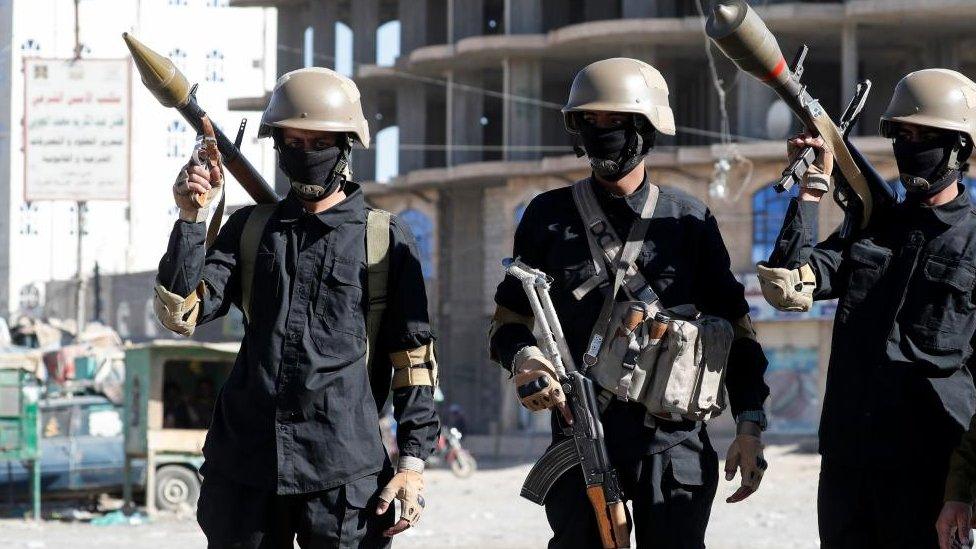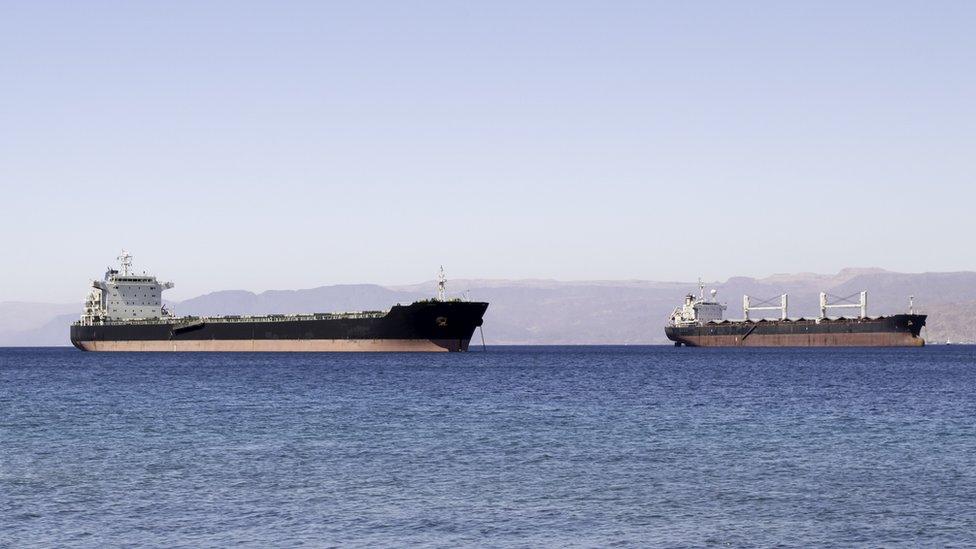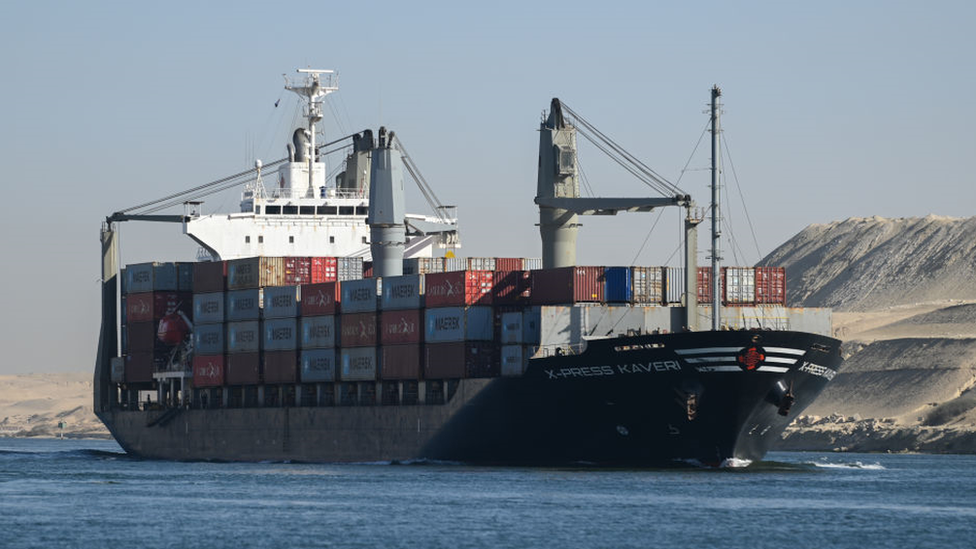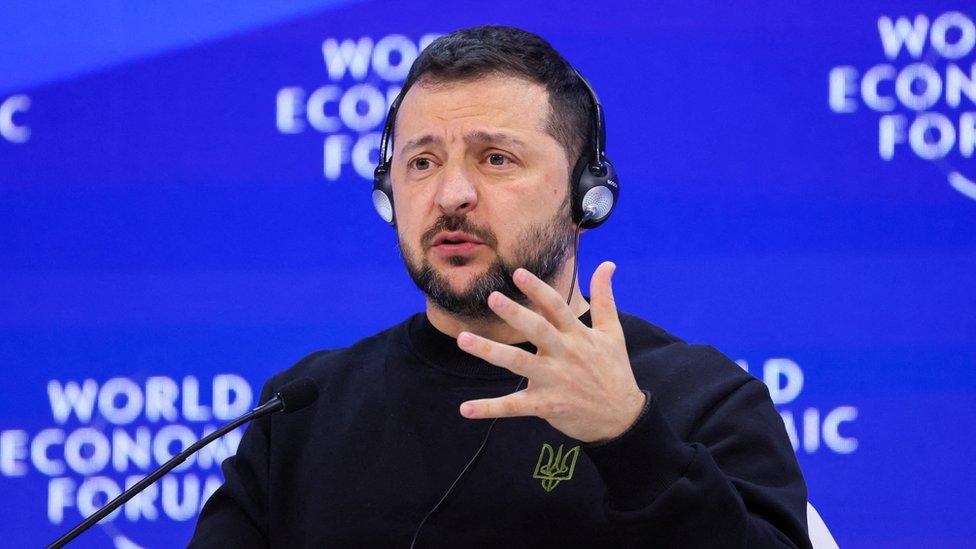Lord Cameron tells Iranian minister Red Sea raids 'must end'
- Published

In response to the Israel-Gaza war Houthi fighters have launched rocket attacks on ships using the vital Red Sea trade route
The foreign secretary has said he delivered a "clear message" to the Iranian government that Houthi attacks in the Red Sea must end.
Lord Cameron met Iranian Foreign Minister Hossein Amir-Abdollahian on Wednesday at the World Economic Forum.
At the meeting he condemned "illegal and unacceptable" Houthi rocket attacks on ships using the vital Red Sea trade route, the Foreign Office said.
He called on Iran to use its influence "to prevent further threats".
Speaking to the BBC at the gathering of business and political leaders in Davos, Switzerland, Lord Cameron said "freedom of navigation is a vital freedom" for global trade.
Iran are "responsible for a lot of instability in the region" through supporting Hamas in Gaza, Hezbollah in Lebanon and the Houthis in Yemen, Lord Cameron said.
The UK has a "difficult relationship" with Iran, but the "job of foreign secretary is to meet and deliver some very clear messages that is what I did".
Responding on social media, Mr Amir-Abdollahian said he told Lord Cameron that "America and England should immediately stop supporting the war crimes of the Zionist apartheid regime against the Palestinians" - a reference to western backing for Israel's right to respond to Hamas's terror attack on 7 October.
Iran-backed Houthi rebels began attacking commercial shipping with missiles and drones late last year after the start of the Israel-Hamas war in October.
The US and UK launched a wave of airstrikes against targets at 16 Iranian-backed Houthi militant locations, on 11 January following
In response to the Red Sea clashes, a large-scale operation on Friday carried out by London and Washington hit more than 60 targets across Yemen.
Around 12-15% of global trade travels through the Red Sea via the Bab al-Mandab Strait - a 20-mile wide channel that splits Eritrea and Djibouti on the African side and Yemen on the Arabian Peninsula - and the Suez Canal.
Cameron: There is a “moral, political, legal, and economic case” for using money seized from Russia to help rebuild Ukraine.
Speaking to broadcasters, Lord Cameron also said there "is a moral, political, legal and economic case" for using frozen Russian assets to support Ukraine.
Ukrainian President Volodymyr Zelensky wants world banks to use some of the seized Russian billions to rebuild Ukraine.
The G7 group is considering taking only the rise in value and interest due since the assets were frozen in 2020.
Lord Cameron said: "One day Russia should be paying reparations. Using some of this money now is like an advanced payment on those reparations."
He said he was working with other governments to find "consensus for dealing with these assets and using them for the benefit of the people of Ukraine".
This would "help Ukraine and save UK taxpayers money at the same time," Lord Cameron said.
Related topics
- Published16 January 2024

- Published15 January 2024

- Published17 January 2024
